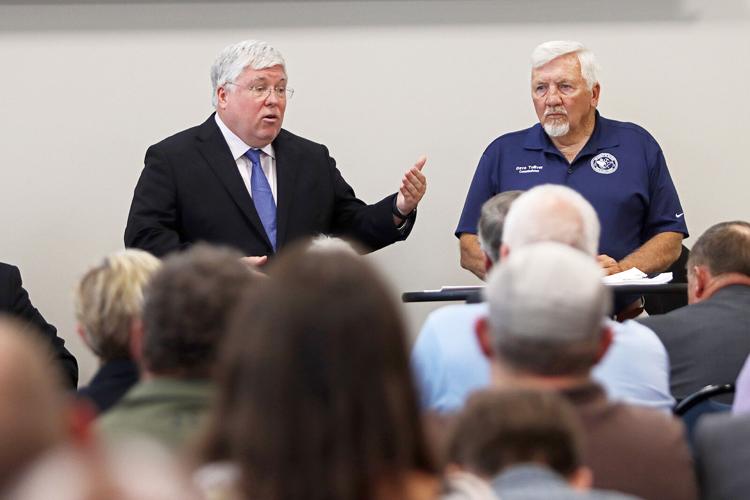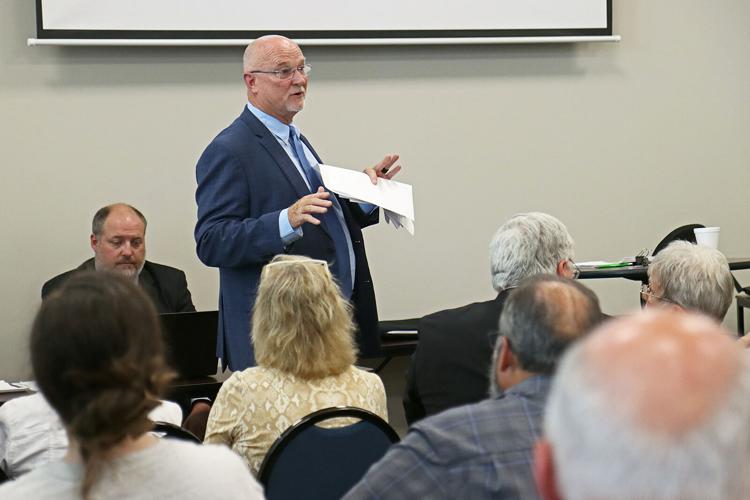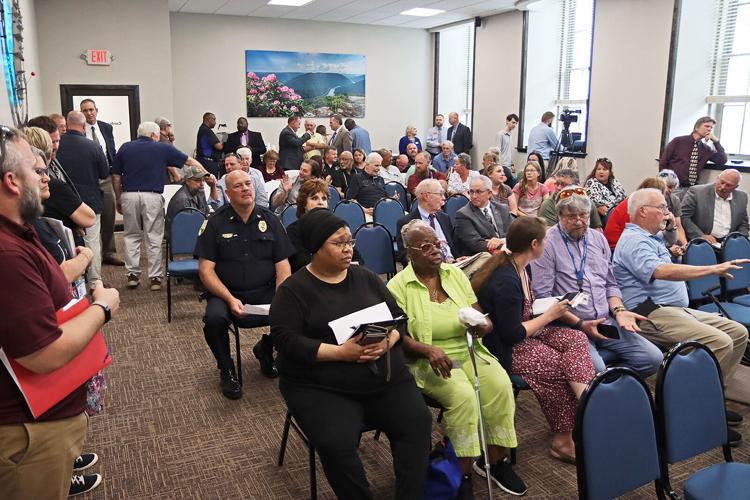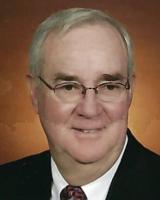West Virginia, like most of the country, has been battling the opioid epidemic and its wave of consequences for more than a decade.
Even with the nationwide crackdown on opioid prescriptions and the increase of treatment centers and recovery programs, Dr. Michael A. “Tony” Kelly said West Virginia’s way of addressing the opioid epidemic isn’t working.
“We make more addicts every day than die and lots die every day,” Kelly said. “Whatever we’ve done in the past, and what I’ve been involved in, in the last 40 years, has not worked.”
As a doctor with more than 40 years of experience who also has a background in emergency medicine, Kelly said he’s watched people die as a result of substance use issues and has seen firsthand the widespread impact opioids have on a community.
Having seen what isn’t working, Kelly now has an opportunity to direct funding and support for a solution to the opioid epidemic as the first director appointed to the West Virginia First Foundation.
The foundation was created as part of the state’s agreement with local governments for how opioid settlement funds, which are estimated to be around a billion dollars, would be used and distributed.
On Wednesday, Kelly, who lives in Raleigh County, was the first of 11 board members to be selected for the foundation, which will have a hand in how the majority of the state’s opioid settlement funds are spent.
As outlined in the terms of the West Virginia First memorandum of understanding (MOU) which local government had to agree to in order to receive settlement money, 24.5 percent of the settlement dollars after attorney fees will go directly to the counties and cities, 72.5 percent will flow to the West Virginia First Foundation for the purpose of engaging in opioid mitigation strategies and 3 percent will be held in trust by the state.
As a member of the board, Kelly will represent the interests of Region 6, which includes the more than 60 local governments in Fayette, Greenbrier, McDowell, Mercer, Monroe, Nicholas, Pocahontas, Raleigh, Summers, Webster and Wyoming counties.
Kelly, whose nomination was backed by the Raleigh County Commission and the city of Beckley, was selected after receiving the highest percentage of the votes by delegates from the local governments in Region 6 at public meeting Wednesday in the Raleigh County Courthouse.
In a phone interview with The Register-Herald following the vote, Kelly said he believes his experience as a doctor as well as his ability to listen to people will be among his biggest assets as a board member.
“I’m a passionate observer of what’s not been working, and I’m a great listener of a huge audience that I hope will bring ideas and that we will spend that money in a smart fashion that will give us a better impact than what we’re doing now,” he said.
Born in Canada, Kelly, 67, received his medical doctorate from Dalhousie University in Nova Scotia, Canada in 1981. He is also board certified with the America Board of Emergency Medicine, which he earned in 1988.
Kelly said he has spent the majority of his medical career in southern West Virginia. During his 40 years in the state, Kelly said he has worked as an emergency room doctor in every hospital in Raleigh County and also for health care organizations that staff doctors in McDowell and Greenbrier counties.
Initially working as the chief of the Department of Emergency Medicine at Beckley Appalachian Regional Hospital from 1983-1985, he is now partner and operations manager of Appalachian Mountains Medical in Beckley.
Raleigh County Commissioner Greg Duckworth, who supported Kelly’s nomination, said he first met Kelly in the 90s at the Welch hospital and thought he was the only person for the job because of his background
“To me, he was the only candidate because he has been in the heart of the opioid situation since before it was an opioid situation. . . he’s been in the trenches of the opioid battle for 30 years,” Duckworth said.
Raleigh County Day Report Center Director Jimmy Miller, who nominated Kelly on behalf of Raleigh County, said Kelly’s experience will be vital to the mission.
“He understands the addiction side of things and sees the toll that addiction has taken on the community through his personal experience,” Miller said. “A lot of people talk about addiction, but they do not understand the addiction process. They just think people use drugs and they commit crimes to get drugs.
“I had that exact same thought myself years ago as a deputy sheriff, but when you learn more about the mechanics of addiction and how mental health plays a role in that, having a clinician, a very well experienced clinician, that is considering ways to address that addiction issue I think is the best way to have that decided.”
When asked what programs or resources he’d like to see the board support, Kelly said he didn’t want to come in with an agenda having just been selected and meant to represent the ideas of a broad region, not just his own ideas.
“I think this board should be representative of a broad audience.” he said. “And I would hope that we could discern the difference between self-serving experiences and experiences for the greater good. And I think that without prejudicing anyone that wants to have something to say later on, I think I come into this with an open mind.”
Kelly said that he would like the board to pursue solutions that are rooted in science, like needle exchange programs which help prevent the transition of bloodborne illnesses like Hep C and HIV.
“It’s not my view, it’s science,” he said. “The (Center for Disease Control and Prevention) says that, if we can’t make everybody a non-addict tomorrow, at least we have to give them clean needles until we can work with them and give them exposure to treatment and counseling . . . but the idea that we’re going to not deal with their disease in a responsible fashion escapes me.”
In addition to supporting prevention, treatment and recovery for people with substance use problems, Kelly said he’d also like the board to look at the broader issue.
“I hope that as we attempt to sort out what to do with this money, that we expand the picture,” he said. “It’s bigger than just opioids. It’s not oxycontin anymore. It’s not doctors writing pills. It’s methamphetamine. It’s heroin. It’s fentanyl. It’s so much bigger. And I just hope whoever gets involved in this, in terms of the disbursement of the money, understands that this is not just us stomping out Oxycontin.”
Members of the West Virginia First Foundation will be responsible for determining how some of the millions of opioid settlement funds comings to the state will be spent.
Kelly is the first of 11 directors to be appointed to the West Virginia First Foundation board.
Of the remaining members, five will be appointed by the governor. There will also be one board member from each of the six districts outlined in the West Virginia First memorandum of understanding (MOU).
West Virginia Attorney General Patrick Morrisey, who was in attendance at the Wednesday meeting, said the approximate gross amount of opioid settlement funds awarded to the state is a billion dollars.
He said these funds will be paid out to local government and the board over a 15-year period.
When asked when local governments can expect to see some of these settlement funds, Morrisey said, “I’m not in charge of that timeline under the process, but I would expect that you’re going to begin to see a lot of action at the end of the year.”
Email: jmoore@register-herald.com

















Commented
Sorry, there are no recent results for popular commented articles.